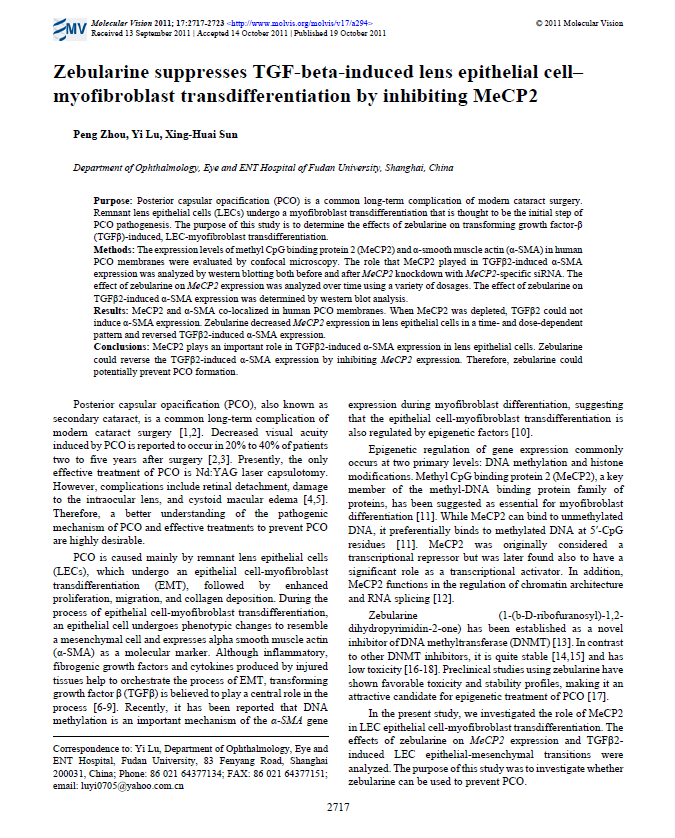
Author information
- 1
- Department of Ophthalmology, Eye and ENT Hospital of Fudan University, Shanghai, China.
Abstract
PURPOSE:
Posterior capsular opacification (PCO) is a common long-term complication of modern cataract surgery. Remnant lens epithelial cells (LECs) undergo a myofibroblast transdifferentiation that is thought to be the initial step of PCO pathogenesis. The purpose of this study is to determine the effects of zebularine on transforming growth factor-β (TGFβ)-induced, LEC-myofibroblast transdifferentiation.
METHODS:
The expression levels of methyl CpG binding protein 2 (MeCP2) and α-smooth muscle actin (α-SMA) in human PCO membranes were evaluated by confocal microscopy. The role that MeCP2 played in TGFβ2-induced α-SMA expression was analyzed by western blotting both before and after MeCP2 knockdown with MeCP2-specific siRNA. The effect of zebularine on MeCP2 expression was analyzed over time using a variety of dosages. The effect of zebularine on TGFβ2-induced α-SMA expression was determined by western blot analysis.
RESULTS:
MeCP2 and α-SMA co-localized in human PCO membranes. When MeCP2 was depleted, TGFβ2 could not induce α-SMA expression. Zebularine decreased MeCP2 expression in lens epithelial cells in a time- and dose-dependent pattern and reversed TGFβ2-induced α-SMA expression.
CONCLUSIONS:
MeCP2 plays an important role in TGFβ2-induced α-SMA expression in lens epithelial cells. Zebularine could reverse the TGFβ2-induced α-SMA expression by inhibiting MeCP2 expression. Therefore, zebularine could potentially prevent PCO formation.
- PMID:
- 22065925
- PMCID:
- PMC3209433